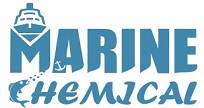
THIOUREA PRACT
THIOUREA PRACT
Thiourea PRACT is a white crystalline solid, both naturally occurring and synthetic, that is soluble in water, ammonium thiocyanate solution and ethanol. In the past, it was used as a photographic toning agent, a component of hair preparations and a dry cleaning agent.
Thiourea is used as an auxiliary agent in diazo paper, light-sensitive photocopy paper and almost all other types of copy paper. It is also used to tone silver-gelatin photographic prints.
Thiourea is used as an auxiliary agent in diazo paper, light-sensitive photocopy paper and almost all other types of copy paper. It is also used to tone silver-gelatin photographic prints.
Thiourea, also called thiocarbamide, an organic compound that resembles urea (q.v.) but contains sulfur instead of oxygen; i.e., the molecular formula is CS(NH2)2, while that of urea is CO(NH2)2.
In thiourea, a double bond is present between the carbon and sulfur atom. So, it is an unsaturated compound. Hence, thiourea is an unsaturated compound.
THIOUREA AR is used in vulcanization accelerators. It is used as an auxiliary agent. It is used in silver – gelatin photographic prints. It is used in diazo paper, light – sensitive photocopy paper.
Thiourea are organic compounds having a carbon atom bonded to two amine groups. The key difference between urea and thiourea is that urea does not contain sulfur atoms, whereas thiourea contains sulfur atoms.
The percentages of nitrogen and sulfur in all the samples synthesized from thiourea were roughly 5–20 wt. % and 3–8 wt. % even after washing with hot water, respectively.
Thiourea, also chemically named as Thiocarbamide, is a nitrogen and sulfur containing compound. It has three functional. groups, amino, imino and thiol, each with important biological roles.




